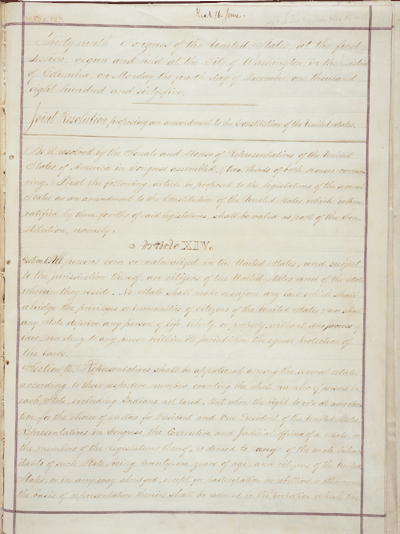The 14th Amendment of the United States Constitution states that “all persons born or naturalized in the United States, and subject to the jurisdiction thereof, are citizens of the United States and of the State wherein they reside.” But what exactly does that mean?
The basis of citizenship in countries around the world is rooted in two different legal principles: the right of the soil and the right of blood. “Right of the soil” (jus soli) grants citizenship based on someone’s place of birth, whereas the “right of blood” (jus sanguinis) grants citizenship based on ancestry. What this means is that when a country follows the right of the soil, individuals are automatically granted citizenship when born within a nation’s borders. This differs from the right of blood which grants citizenship to individuals born to citizens of a country.
The U.S. combines both legal principles when determining citizenship. People born on U.S. soil receive citizenship, while ancestry-based extends citizen-hood to children of U.S. citizens born outside of the country so long as they meet the requirements. There are more than 30 countries around the world that use birthright citizenship as their governmental policy.
How did we get birthright citizenship?
After the American Civil War, formerly enslaved people and free Black residents of the U.S. were not considered citizens. To protect them and their children, Congress drafted the 14th Amendment, which was ratified then ratified by the states and added to the Constitution. This sparked much debate in the 1860s as current citizens worried the policy would include the Chinese.
In 1898, in the case of United States v. Wong Kim Ark, the Supreme Court ruled that this law would apply to all people regardless of race. Mr. Wong Kim Ark was born in San Francisco, California, the child of two Chinese nationals. After a trip abroad, Wong was denied re-entry into the United States because he was being mistaken for a noncitizen during the time of the Chinese Exclusion Act of 1882. The Court ruled in favor of Wong Kim Ark which established the parameters of birthright citizenship as seen today.
Can an executive order end birthright citizenship?
Legal scholars believe in short that the answer is “no,” that the president of the United States cannot unilaterally change the Constitution through an executive order. Amending the Constitution would require a two-thirds vote in both the House of Representatives and the Senate. After that, three-quarters of the states would need to ratify a modification to the amendment.
While there’s a lot of confusion about whether the executive order can in fact be implemented, the law currently stands. Recently, a federal judge blocked President Trump’s executive order deeming it to be “blatantly unconstitutional.” This case will likely make its way to the U.S. Supreme Court.
